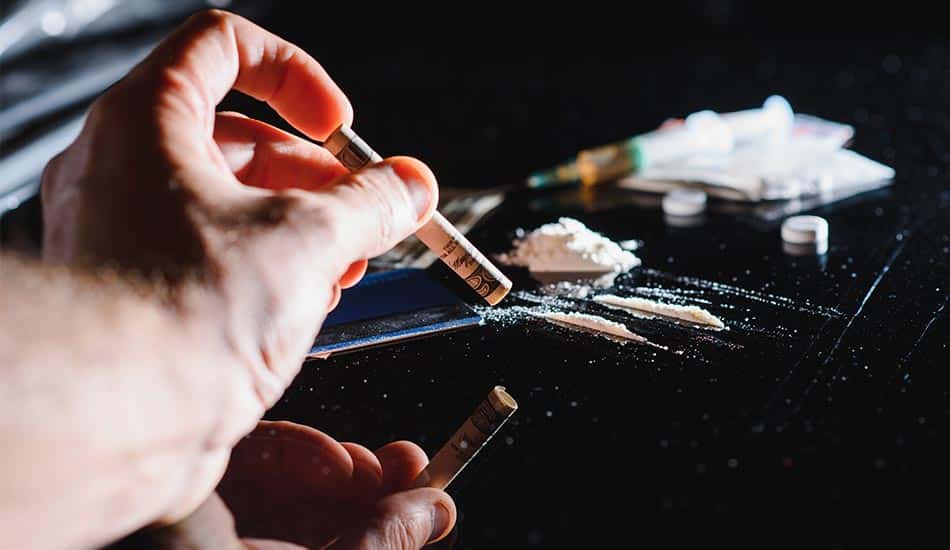- Home
- Treatment
Treatment Designed for You.
Get in touch with Absolute Awakenings today and begin your journey to long-term healing & recovery. - What We Treat
Get help today, start your journey!
An Experience in Healing
Get in touch with Absolute Awakenings today and begin your journey to long-term healing & recovery. - About
The Rehab You've Been Looking For
Get in touch with Absolute Awakenings today and begin your journey to long-term healing & recovery. - Tour
- Resources
Resources
What Comes After An Alcohol IOP Program? Aftercare Options Explained
January 30, 2026Can FMLA Be Used for Outpatient Substance Abuse Treatment?
January 7, 2026Don't Wait Another Day.
Get in touch with Absolute Awakenings today and begin your journey to long-term healing & recovery. - Admissions
The Rehab You've Been Looking For
Get in touch with Absolute Awakenings today and begin your journey to long-term healing & recovery. - Contact
(866) 627-0196
3000 NJ-10, Morris Plains, NJ 07950
admissions@absoluteawakenings.com
Schedule a Tour Now
Get in touch with Absolute Awakenings today and begin your journey to long-term healing & recovery.
Begin Your Journey Now
Begin Your Journey Now
- Home
- Treatment
Treatment Designed for You.
Get in touch with Absolute Awakenings today and begin your journey to long-term healing & recovery. - What We Treat
Get help today, start your journey!
An Experience in Healing
Get in touch with Absolute Awakenings today and begin your journey to long-term healing & recovery. - About
The Rehab You've Been Looking For
Get in touch with Absolute Awakenings today and begin your journey to long-term healing & recovery. - Tour
- Resources
Resources
What Comes After An Alcohol IOP Program? Aftercare Options Explained
January 30, 2026Can FMLA Be Used for Outpatient Substance Abuse Treatment?
January 7, 2026Don't Wait Another Day.
Get in touch with Absolute Awakenings today and begin your journey to long-term healing & recovery. - Admissions
The Rehab You've Been Looking For
Get in touch with Absolute Awakenings today and begin your journey to long-term healing & recovery. - Contact
(866) 627-0196
3000 NJ-10, Morris Plains, NJ 07950
admissions@absoluteawakenings.com
Schedule a Tour Now
Get in touch with Absolute Awakenings today and begin your journey to long-term healing & recovery.
- Home
- What We Treat
- Substance Abuse
- Stimulants
Stimulant Addiction: Signs, Symptoms, Risks, and Treatment Resources
There are many different types of stimulants, from green tea and nicotine to cocaine and Adderall®. They all serve to speed up brain and nervous system function to increase focus and energy. Unfortunately, many prescription and illegal stimulant drugs have the potential to be highly addictive.


What We Treat
We Accept With Most Major Insurance
If you or a loved one is ready to get help but finances are holding you back, give us a call. We can work with your health insurance provider.






Related Topics
Additional Resources for Stimulant Addiction
Table of Contents
Key Points
- Stimulants are prescription and illicit substances that enhance or accelerate the function of the nervous system.
- Prescription stimulants like Adderall® and Ritalin® are given to treat ADHD and narcolepsy, while illegal stimulants like crack cocaine or crystal meth have no medical use.
- Prescription stimulants are associated with side effects including insomnia, anxiety, nausea, vomiting, headaches, dry mouth, constipation, and weight loss.
- Other stimulants, like cocaine, are associated with more serious side effects like headaches, fast heart rate, talkativeness, mood swings, and increased aggressiveness.
- If you misuse stimulants, it is possible to overdose on them which can lead to heart attack, stroke, coma, brain damage, or death.
- Professional treatment is the best defense against stimulant use disorder.
What are Stimulants?
Stimulants are prescription and illicit substances that enhance the function of the nervous system. This is the opposite effect of sedative-hypnotic drugs, like benzodiazepines, which slow down and depress the nervous system. Enhancing CNS function allows the brain to become more focused and alert.
Prescription stimulants like Adderall® and Ritalin® are given to treat ADHD and narcolepsy, while illegal stimulants like crack cocaine or crystal meth have no medical use. All of these stimulants are Schedule II controlled substances citing a high potential for abuse and addiction.
Stimulant Addiction and Abuse
Due to the effect on the central nervous system and the positive effects, stimulants are considered highly addictive substances that easily lead to abuse. While this is less likely with prescription medications taken only as prescribed, it is still possible to develop a dependence.
Those who suffer from substance use disorder are more likely to abuse prescription medications or overdose on substances. Without professional treatment, these conditions can lead to serious health concerns.
How Addictive Are Stimulants?
When stimulants are misused, they induce an intense feeling of euphoria that often leads to increasing frequency and greater doses, sparking the cycle of addiction. As a Schedule II controlled substance, stimulants are deemed highly addictive.
Signs of Stimulant Addiction:
Each person’s experience will be unique, but some common signs of substance misuse include the following:
- Social isolation
- Mood swings
- Increased talkativeness
- Weight loss
- Fast heart rate
- Withdrawal symptoms
- Cravings
- Stealing money or more stimulants
Effects of Stimulant Abuse
When taking stimulants in off-prescription routes, you may experience feelings of happiness and confidence that quickly devolve into mood swings. Many people become irritable and paranoid, which can lead to violence. You may also feel more sensitive to light, colors, and sounds. Some may experience more serious side effects, like seizures or strokes.
Dangers of Long-Term Stimulant Use
Long-term use of stimulants can physically and chemically change your brain. Your brain will become dependent on the presence of these drugs, and when you stop taking them, it may feel impossible to function normally.
Long-term stimulant use can also destroy your body over time with common long-term side effects, including lung damage, bowel destruction, loss of smell, heart disease, and nosebleeds.
Side Effects of ADHD Medications (Adderall®, Desoxyn®)
Adderall® is one of the most commonly prescribed medications for ADHD and is made of two different amphetamine salts. It helps these people be more focused in their daily lives, but it also comes with a variety of unpleasant side effects, including insomnia and anxiety. Other names for Adderall include speed, Addy, amps, and smart pills.
Desoxyn® is also prescribed to treat ADHD. This medication can cause nausea, vomiting, headaches, dry mouth, constipation, and weight loss. Common names for this substance include crystal, glass, crank, and chalk.
Side Effects of Cocaine
Cocaine is a naturally-derived stimulant substance from the coca plant native to South America. In some cases, cocaine derivatives are used in a medical setting to anesthetize the respiratory tract or throat. However, this highly addictive stimulant is most commonly consumed as an illicit street drug and a dangerous recreational substance.
Common side effects include headaches, fast heart rate, talkativeness, mood swings, and increased aggressiveness. Other names for cocaine include snow, blow, crack, and coke.

Stimulant Quick Reference
| Drug | Commercial/Street Names | DEA Schedule | Administration |
|---|---|---|---|
| Amphetamine salts | Amphetamine salts, speed, Addy, Adderall | Schedule II | Oral |
| Meth | Desoxyn, crystal, glass, crank | Schedule II | Oral |
| Crack Cocaine | Crack, blow, snow, coke | Schedule II | Oral |
Statistics on Stimulant Use, Misuse, and Addiction
Stimulant abuse is quickly becoming a serious health concern. Of everyone who misuses stimulants, 56.3% reportedly do so to feel more awake and focused.[1] Many of these people don’t get prescriptions but instead, purchase or steal stimulants from their relatives or friends.
Taking stimulants without a prescription is already a form of misuse, but many go a step further. They may try to get a more intense effect by snorting the crushed pills or taking too many pills at once. This can lead to stimulant intoxication symptoms and overdose if mixed with other substances.
Can You Overdose on Stimulants?
Signs and Symptoms of Stimulant Overdose
Those who have overdosed can experience various mental changes, such as hallucinations, becoming paranoid, and entering a state of delirium or psychosis. This can make it difficult to communicate with the person, and they may become violent.
Cocaine, a common stimulant, is present in 1 out of 5 overdoses and presents with distinct symptoms, including tremors, seizures, chest pain, heart attack, nausea, and stroke.[2]
What to do if you suspect someone is overdosing on a stimulant:
A person who has overdosed needs immediate medical attention. This is their best chance for safe recovery. Try to keep the person calm until the paramedics get there. Once help arrives, there may be medication interventions attempted that can mitigate or reverse the overdose.
How Are Stimulants Taken?
Prescription stimulants should be taken as your doctor advises. Adderall® and Desoxyn® are pills taken orally. This route ensures that the pill’s dosage is released gradually rather than all at once.
Over 3.7million people who use prescription stimulants in the United States have reported misusing their prescriptions one or more times in a 12-month period.[3] Misuse may involve injecting the crushed and dissolved pills or snorting the crushed powder. This releases the pill’s whole dosage at once to experience immediate effects of euphoria and a burst of energy.
Mixing Stimulants with Other Drugs
Stimulants should not be mixed with other stimulants as this will intensify the effects on the CNS system. This can cause the heart to beat so fast that you experience a heart attack or stroke. This can also induce a severe state of panic or paranoia. Mixing stimulants with alcohol and other substances is also not recommended as it can lead to other health consequences.
Cutting Agents Used for Stimulants
Prescription stimulants are not usually cut with anything unless they are being distributed on the street. Street stimulants are often cut with dangerous substances, such as talcum powder, rat poison, drain cleaner, and cornstarch. Together, this can lead to life-threatening side effects and potential overdose.
Stimulant Addiction Treatment
Treatment for a stimulant addiction takes anywhere from a few weeks to a few months when you’re committed to a full continuum of care.
Beginning with Detox to rid your body of harmful substances, followed by Partial Care Programs, professional treatment is where you develop the skills to build a foundation for long-term recovery. Intensive Outpatient Programs, standard Outpatient Treatment, and Relapse Prevention skill training are additional interventions that help you or your loved one reinforce personal autonomy and lasting sobriety.
During treatment, participants will participate in one-on-one therapy, group therapy, and peer support groups to create healthier habits that last a lifetime.
Therapies Used in Stimulant Addiction Treatment
Therapy is a deeply effective and evidence-based treatment for a multitude of substance use disorders. In the treatment setting, these modalities help you understand internal thought processes, external behavior patterns, and underlying mental health concerns that may have influenced unhealthy substance use. Industry-leading modalities include:
Dual Diagnosis for Co-Occurring Disorders
Those who use prescription stimulants may have ADHD or sleep disorders like narcolepsy. Those who use illegal stimulants may have a history of substance use disorder, or they may be depressed or anxious and wish to self-mediate.
Whatever the catalyst, when both substance use and mental health concerns present together, each condition should be treated with specific interventions. Dual diagnosis treatment is the most effective approach to holistic wellness that supports long-term healing.
Stimulant Withdrawal Management Treatment
The process of detox and withdrawal lasts anywhere from a few days to a few weeks, with some residual symptoms lingering longer. Early recovery is the most vulnerable part of your treatment journey and requires an integrated and supportive approach to offer the strongest defense against relapse.
Drugs Used in Stimulant Withdrawal Management
For some patients, medication-assisted treatment may be available to alleviate the uncomfortable symptoms of withdrawal and reduce cravings. Some comfort-measure medications include Prozac® and naltrexone. Some side effects of these drugs include nausea, headaches, insomnia, digestive issues, and body aches.

Amanda Stevens, BS
Medical Content Writer
Amanda Stevens is a highly respected figure in the field of medical content writing, with a specific focus on eating disorders and addiction treatment. Amanda earned a Bachelor of Science degree in Social Work from Purdue University, graduating Magna Cum Laude, which serves as a strong educational foundation for her contributions.
Absolute Awakenings Editorial Guidelines
At Absolute Awakenings, we take information integrity seriously. We have dedicated our resources to ensure that all content published to our blog is medically sound. As such, all content on our blog has been thoroughly reviewed by a doctorate level clinician such as a Medical Doctor, or Psy.D, so that you can trust all of the data we publish.
What We Treat
We Accept With Most Major Insurance
If you or a loved one is ready to get help but finances are holding you back, give us a call. We can work with your health insurance provider.






Related Topics
Additional Resources for Stimulant Addiction
don't let stimulants control your life
Recovery from Stimulant Addiction Happens at Our NJ Stimulant Rehab
Recovery from stimulant addiction is a journey of transformation. It’s about more than just overcoming addiction; it’s about reclaiming your life, rediscovering your strengths, and building a future of hope and possibility. Let Absolute Awakenings be your partner on this journey, providing the guidance, support, and care you need to navigate the path to lasting recovery.
Embrace the opportunity for healing and growth. Reach out to Absolute Awakenings Treatment Center today, and take the first step toward a brighter, stimulant-free future. Your journey to recovery and flourishing wellness begins here, with us, in New Jersey. Together, we can achieve the extraordinary.
Frequently Asked Questions
Who Takes Stimulants?
People who have narcolepsy or ADHD are often prescribed stimulants. Substance use disorder sufferers may misuse prescription or illegal stimulants by taking them without a prescription or for recreational purposes.
Are All Stimulants Addictive?
Some stimulants are more addictive than others. For example, crack cocaine is far more addictive than the caffeine in a cup of green tea due to its near-immediate euphoric effects. Illegal and prescription stimulants both have a high potential for abuse and dependence.
What Are Stimulant Withdrawal Symptoms?
Depending on the specific substance, dose, and frequency of use, symptoms, and their severity will vary. However, common withdrawal symptoms include nausea, vomiting, paranoia, hallucinations, fever, chills, pain, and anxiety.
Sources
[1] U.S. Department of Health and Human Services. (2023b, February 13). What is the scope of Prescription Drug Misuse in the United States?. National Institutes of Health. https://nida.nih.gov/publications/research-reports/misuse-prescription-drugs/what-scope-prescription-drug-misuse on May 21, 2023.
[2] Compton, W. M., Han, B., Blanco, C., Johnson, K., & Jones, C. M. (2018). Prevalence and Correlates of Prescription Stimulant Use, Misuse, Use Disorders, and Motivations for Misuse Among Adults in the United States. The American journal of psychiatry, 175(8), 741–755. Retrieved from https://pubmed.ncbi.nlm.nih.gov/29656665/# On May 21, 2023.
[3] Centers for Disease Control and Prevention. (2023b, May 12). Other drugs. Centers for Disease Control and Prevention. Retrieved from https://www.cdc.gov/drugoverdose/deaths/other-drugs.html on May 21, 2023.
Stories of Hope & Healing
Hear from Our Alumni
A jewel among many local drug and alcohol rehab treatment centers in Denville, New Jersey, the care and treatment options you’ll receive at Absolute Awakenings is second to none. From not knowing if you’ll ever feel in control again to being confident in the path you’re on, we are invested in YOU every step of the way.
Begin Your Journey to Long-Term Healing
Make the Call. Change Your Life.
Yes, You Can Get Your Life Back...
With our trained and compassionate professionals in your corner, freedom can be yours. All it takes is you choose yourself. Choosing a better tomorrow.
© Copyright 2025. All Rights Reserved. AATC.
- Terms & Conditions
- Privacy Policy


